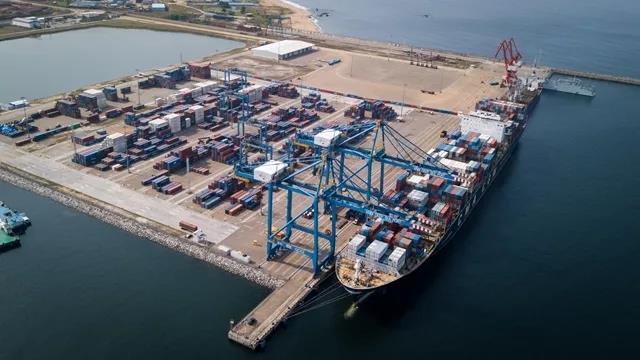The African free trade area will accelerate regional economic integration

The African free trade area aims to realize the free movement of goods, services, capital and personnel in the region through lowering tariffs and removing trade barriers, so as to form a single big market for African economies. It is expected to increase intra-african trade by 52.3%.The African free trade area aims to realize the free movement of goods, services, capital and personnel in the region through lowering tariffs and removing trade barriers, so as to form a single big market for African economies. It is expected to increase intra-african trade by 52.3%.
"One Africa, one market, one future! On May 30, a free trade agreement on the African continent came into force. This day will be remembered by history as another solid step on the road to a new Africa of peace, stability, prosperity, unity and integration for africans who aspire to be masters of their own destiny.
When people talk about Africa, they always think of Africa as a whole. But not everyone is familiar with the reality of African isolation. On the African continent, many neighboring countries often have no direct flights between them; The proportion of African countries' internal trade in their total foreign trade is relatively low. African countries invest very little among themselves... The root cause of all these unreasonable phenomena is that for a long time, colonial masters have set up their own spheres of influence in Africa out of selfish interests, leading to the isolation of different regions in Africa.
African countries have always cherished the long-cherished wish to shake off the shadow of colonial history and achieve strength through unity. The plan to build a free trade area on the African continent is a concrete manifestation of this vision. As early as June 1991, African heads of state and government adopted the abuja treaty at the 27th session of the organization of African unity (oau) held in abuja, capital of Nigeria, and declared the formal establishment of the African economic community. In January 2015, the African union adopted agenda 2063, which also put forward the idea of building a stable, prosperous and integrated Africa. In June of the same year, African countries decided to open negotiations on a continental free trade area. So far, 52 of the 55 African union members have signed the afta, excluding Nigeria, eritrea and benin. On April 29, 2019, the 22nd member state ratified the agreement and submitted its instrument of ratification to Albert muchanga, the trade and industry commissioner of the African union. This means that the fta has reached the legal threshold of the minimum number of approved member states and will officially enter into force one month later according to the legal schedule.
Free trade zones help improve the continent's investment prospects. African union trade and industry commissioner Albert muchanga says the continent's economies are fragmented and very small compared to the rest of the world, making it difficult for investors to invest heavily in these small markets. By contrast, a single market of 1.2bn people with a gross domestic product of $2.5tn represents a huge opportunity for any rational investor.
Free trade zones will also force the continent to rewrite its infrastructure map. Abdeslam belo, a consultant to the world bank, has been right to point out that the infrastructure systems left over from colonial times were built to transport commodities from inland to ports or to colonial countries. Very little infrastructure has been built to connect countries and regions. In order to further promote intra-african trade, integration and socio-economic development, African countries are accelerating the construction of regional and continental road and railway networks, and the current regional aviation network has made remarkable achievements. The completion of the free trade area will undoubtedly accelerate this process.
The establishment of the free trade area is a firm support for multilateralism and globalization. At the international level, anti-globalization, protectionism and unilateralism are on the rise. Economic and trade frictions are on the rise. At this time, African countries have demonstrated their pursuit of trade liberalization and facilitation with concrete actions, undoubtedly setting an international example.
SOURCE: ECONOMIC DAILY
With the formal implementation of the free trade zone, the follow-up work is also in full swing. Kenya, Ghana, Senegal and Egypt are bidding to set up the secretariat of the African free trade area in July. Is expected in July, the African union summit held in Niamey, Niger the au and African countries trade ministers will introduce specific support measures, including identifying rules of origin, commodity trade, non-tariff barriers, tariff concession schedule online monitoring and elimination mechanism, establishing digital payment and settlement platform and the African trade watch portal, etc. We can expect more good news from the African free trade area in the near future.
SOURCE: ECONOMIC DAILY
